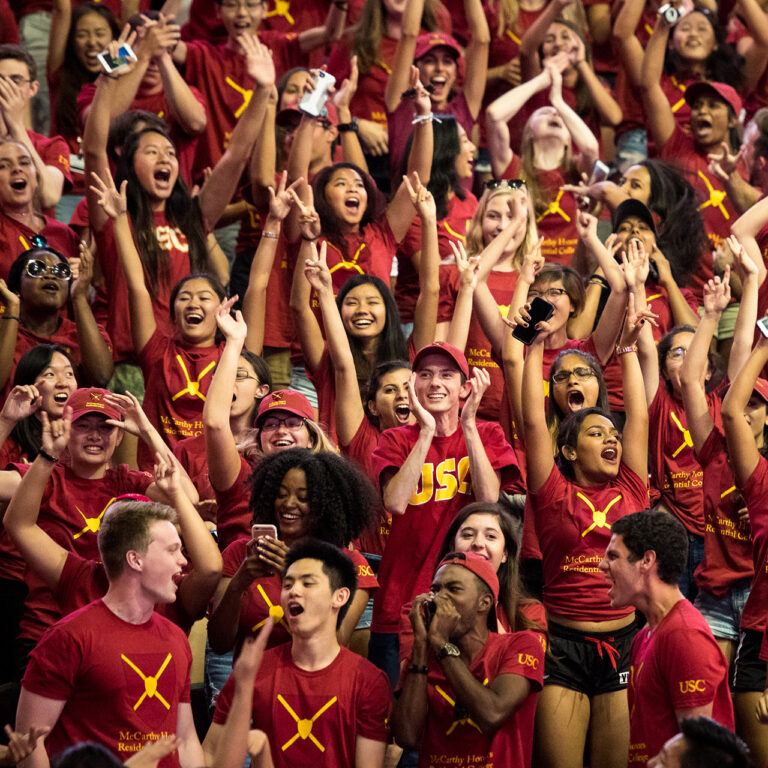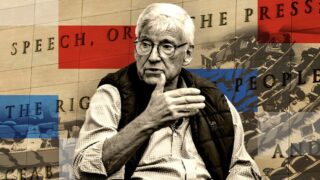USC President Carol Folt delivers opening remarks during the Los Angeles Business Council’s Sustainability Summit. (USC Photo/Gus Ruelas)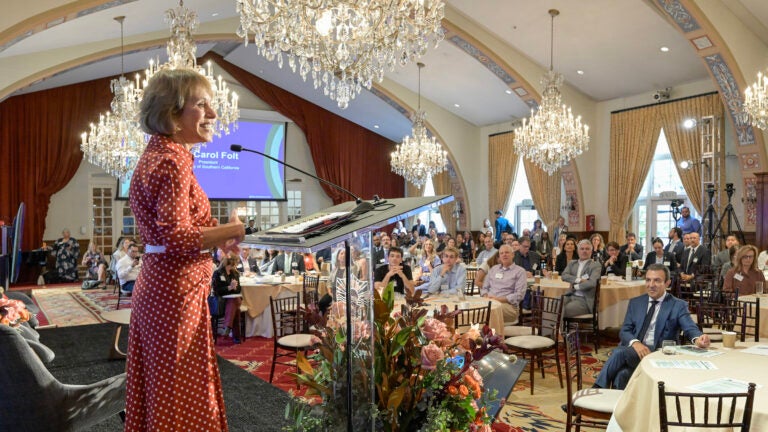
Social Impact
USC hosts Los Angeles Business Council’s Sustainability Summit
GREEN WEEK: The council’s 18th annual Sustainability Summit was held at Town and Gown during the university’s Green Week observation.
USC President Carol Folt welcomed leaders in sustainability to the university for the 18th Annual Los Angeles Business Council Sustainability Summit.
The standing-room-only event was held at Town and Gown on the USC Unviersity Park Campus during the university’s fourth annual Green Week. The awareness week, started by Folt and her sustainability-focused working group, celebrates all that USC has accomplished in making campuses and operations greener.
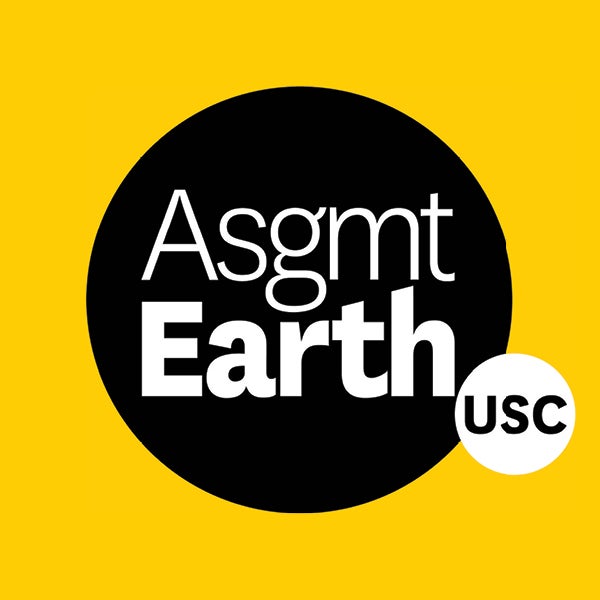
It also heralds the collaboration between USC students, faculty and staff who are committed to the university’s sustainability mission, Assignment: Earth. Folt introduced the framework in 2022 to ensure the university remains a leader in sustainability operations, research and education.
“Because we are in L.A., our global platform and our global economy can really help set the pace,” Folt said, addressing a crowd made up of academic, business, government and nonprofit leaders. “Sustainability is deeply embedded in this city.”
(Story continues below video.)
Video — Learn about USC’s sustainability “moonshot” and the Assignment: Earth initiative:
“I am not filled with despair,” she said. “I carry feelings of hope together with urgency every day, and the reason I feel it is because of people like you, but also driven by the youth of our world.”
Los Angeles Business Council Sustainability Summit: Addressing challenges
The summit addressed numerous sustainability challenges including how to reach clean energy goals, the need for energy and infrastructure investment, and the future of the region’s water supply.
“California, in so many ways, is Exhibit A for the climate crisis,” said U.S. Sen. Alex Padilla, who previously served as the chair of the California State Senate Committee on Energy, Utilities and Communications. “Yes, it is real, we’re not in denial, and it’s not some risk far off in the future. It is here it is now.”
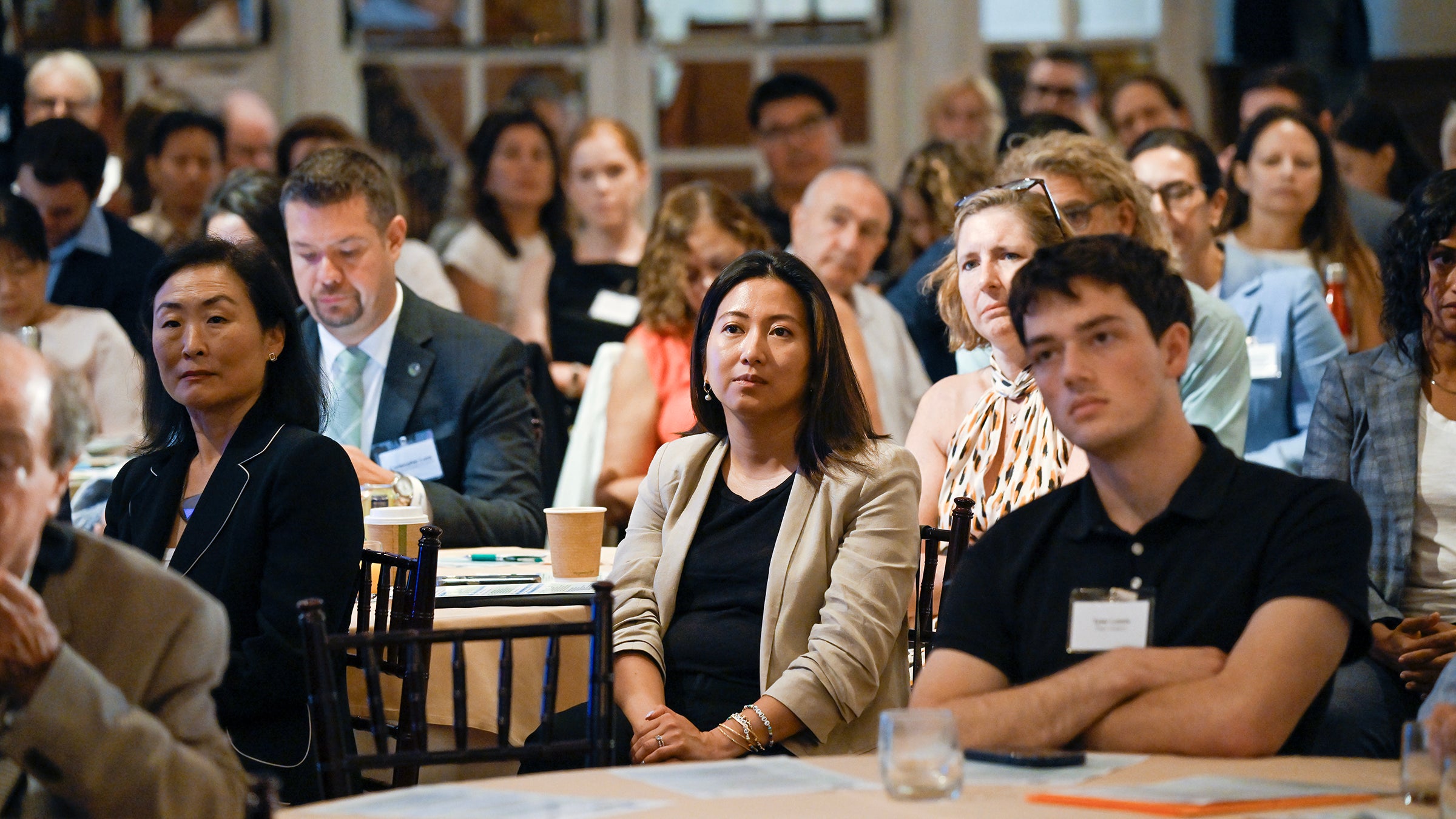
The summit also highlighted a newly completed USC study, commissioned by the Business Council, that examines the difficulties trucking companies serving the ports of Los Angeles and Long Beach face in achieving zero-emission drayage fleets that can ship freight by land, water and air by 2035, as mandated by California’s Advanced Clean Fleets laws.
“I think there’s a large sector of the industry that is going to need more information and more support, and that is one of the recommendations that we are making,” said Marlon Boarnet, professor of public policy at the USC Price School of Public Policy and director of the METRANS Transportation Consortium. METRANS is a joint partnership between USC and California State University, Long Beach.
The report indicates that there are opportunities for policymakers to hasten the carbon-reduction effort such as providing subsidies that will help pay for the switch to zero-emission, hydrogen and electric trucks, as well as public-private partnerships with funds that back renewable energy projects including for transportation.
